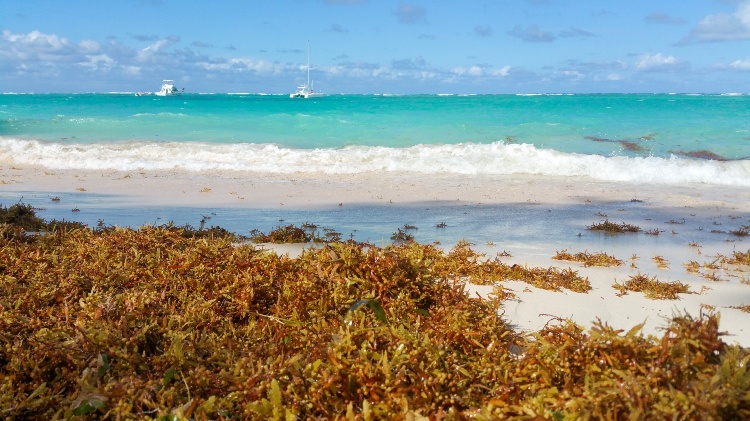Increase in sea temperature allows Sargassum weed to spread in Mexico
But now, thanks to support from the UN Development Programme (UNDP), efforts are underway to hold back its advance and protect local ecosystems.

- Country:
- Mexico
An invasive species of seaweed which has blighted tourist beaches in Mexico has become more aggressive due to the heating effects of climate change. But now, thanks to support from the UN Development Programme (UNDP), efforts are underway to hold back its advance and protect local ecosystems.
Scientists say an increase in the temperature of the sea, caused by climate change has allowed the Sargassum weed to spread, filling coastal waters and blocking sunlight essential to the growth of indigenous seagrasses and other plants.
The presence of the weed also warms the sea in localized spots. And, it’s estimated that nearly 40 million cubic tonnes of Sargassum are washing up on shores each year releasing harmful methane, a gas which absorbs the sun’s heat and leads to the warming of the atmosphere.
- READ MORE ON:
- UNDP
- climate change
- ecosystems
- Sargassum weed
- UN Development Programme
- Mexico
ALSO READ
Bitter Cold Snaps Signal Climate Change in North America
Green Pledge Turns Into Mass Movement to Combat Climate Change
UNDP: Gaza Has Lost 70 Years of Development, Early Recovery Must Begin Now
Tamil Nadu at forefront of climate governance through TN Climate Change Mission: TN Finance Minister.
Stuart Calman Appointed New Zealand’s Climate Change Ambassador










